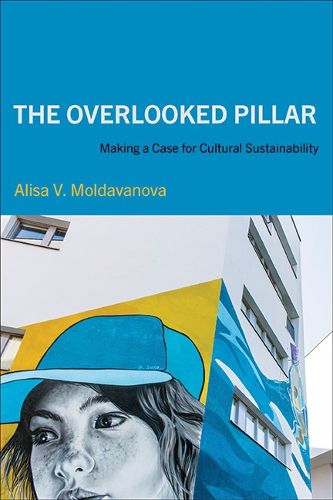Readings Newsletter
Become a Readings Member to make your shopping experience even easier.
Sign in or sign up for free!
You’re not far away from qualifying for FREE standard shipping within Australia
You’ve qualified for FREE standard shipping within Australia
The cart is loading…






Elevates in systematic ways the importance of organizational thinking about sustainability and emphasizes the importance of cultural organizations in facilitating societal sustainability goals.
Offering an original perspective on the sustainable-development discourse by emphasizing the importance of culture and cultural institutions in facilitating societal sustainability goals, The Overlooked Pillar conceptualizes sustainability as an institutional logic that develops in organizations and is enacted by managers of such organizations who make decisions and engage in sustainable thinking on a daily basis, leading them to reconcile current organizational realities and the need to adapt to those realities with considerations of the needs of future generations. Drawing on more than five years of research conducted on a variety of organizations within the domain of the arts and humanities, Alisa V. Moldavanova provides a framework for organizational sustainability based on the dynamic interplay of two narratives-institutional resilience and institutional distinctiveness-and identifies mechanisms and strategies adopted by managers of cultural organizations that maintain and enhance intergenerational sustainability. The broader intellectual implication of the insights offered here encompasses the critical notion that genuine long-term sustainability, the kind that secures the rights of future generations, requires sustainable stewardship today.
$9.00 standard shipping within Australia
FREE standard shipping within Australia for orders over $100.00
Express & International shipping calculated at checkout
Elevates in systematic ways the importance of organizational thinking about sustainability and emphasizes the importance of cultural organizations in facilitating societal sustainability goals.
Offering an original perspective on the sustainable-development discourse by emphasizing the importance of culture and cultural institutions in facilitating societal sustainability goals, The Overlooked Pillar conceptualizes sustainability as an institutional logic that develops in organizations and is enacted by managers of such organizations who make decisions and engage in sustainable thinking on a daily basis, leading them to reconcile current organizational realities and the need to adapt to those realities with considerations of the needs of future generations. Drawing on more than five years of research conducted on a variety of organizations within the domain of the arts and humanities, Alisa V. Moldavanova provides a framework for organizational sustainability based on the dynamic interplay of two narratives-institutional resilience and institutional distinctiveness-and identifies mechanisms and strategies adopted by managers of cultural organizations that maintain and enhance intergenerational sustainability. The broader intellectual implication of the insights offered here encompasses the critical notion that genuine long-term sustainability, the kind that secures the rights of future generations, requires sustainable stewardship today.